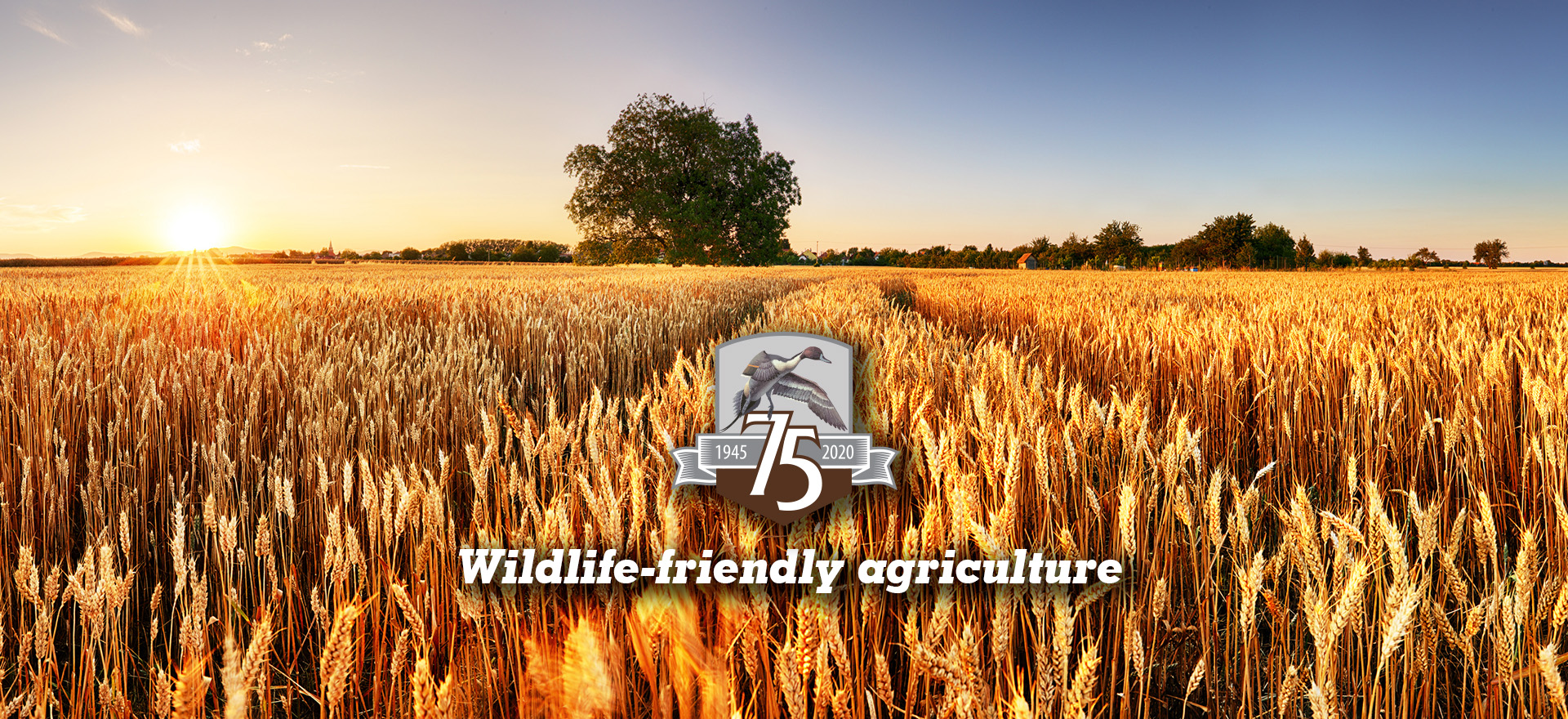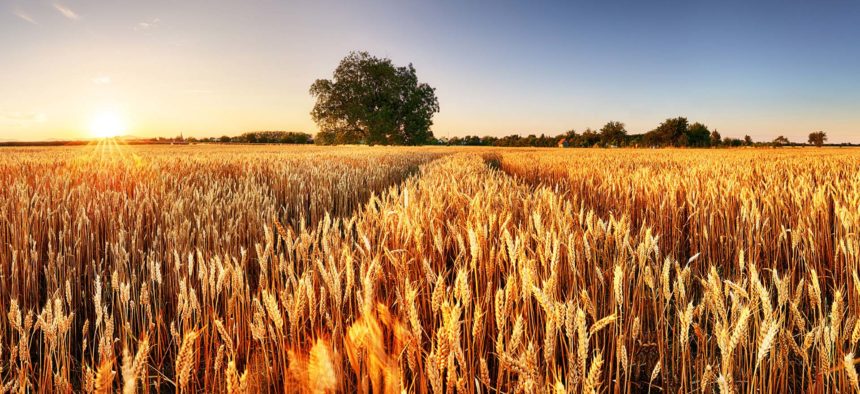
May 7, 2020
New program to help mallards is progressing

Thanks to the generous donations of our supporters, California Waterfowl's Delayed Wheat Harvest Incentive Program is now operational! The program has enrolled 1,645 acres, and we have more farmers on a waitlist who can be added to the program if additional funding becomes available.
The program aims to save wild mallard nests by providing incentives for farmers to delay wheat harvest during nesting season. Fields of winter wheat and triticale look like attractive nesting habitat to mallards and other ducks that breed in California, but harvest often comes before all nests have hatched. Delaying harvest until July 1-15 helps ducks, but can degrade crops or increase fire risk, so this CWA pilot program provides incentives to help mitigate those risks.
The response of farmers has been overwhelmingly positive: They applied to enroll 7,684 acres, which represents a whopping 11% of wheat acreage planted in the Sacramento Valley. "This is an incredible result for a brand-new program," said CWA Chief Operating Officer Jake Messerli.
Waterfowl Programs staff Caroline Brady, Brian Huber and Jason Coslovich have surveyed applicants' fields to determine where incentive payments will do the most good. “We’ve seen a lot of mallards flying in and out of these fields during our surveys, so we know we’re in the right places,” said Brady, CWA's Waterfowl Programs Supervisor.
The only thing keeping CWA from enrolling more fields is funding, so donations are still being accepted and will be earmarked exclusively for this program. "We've encouraged waitlisted applicants to keep their crop on the ground as long as possible in case additional funding becomes available," Brady said.
For those fields that don't get enrolled, California Waterfowl still operates its successful Egg Salvage Program, which rescues nests when harvest and field work can’t be delayed. Eggs are incubated and ducklings are reared for about five weeks before being released into the wild.
But Brady is seeking a major three-year grant to continue and expand the wheat program next year, because the most ideal outcome for ducklings is for them to be reared by their mothers in the wild.
"Of the things CWA can do to increase local mallard production, this program is a simple, scalable and cost-effective solution that we’re really excited about," said Messerli. "I’m grateful for the CWA donors who stepped up to get this program up and running."


